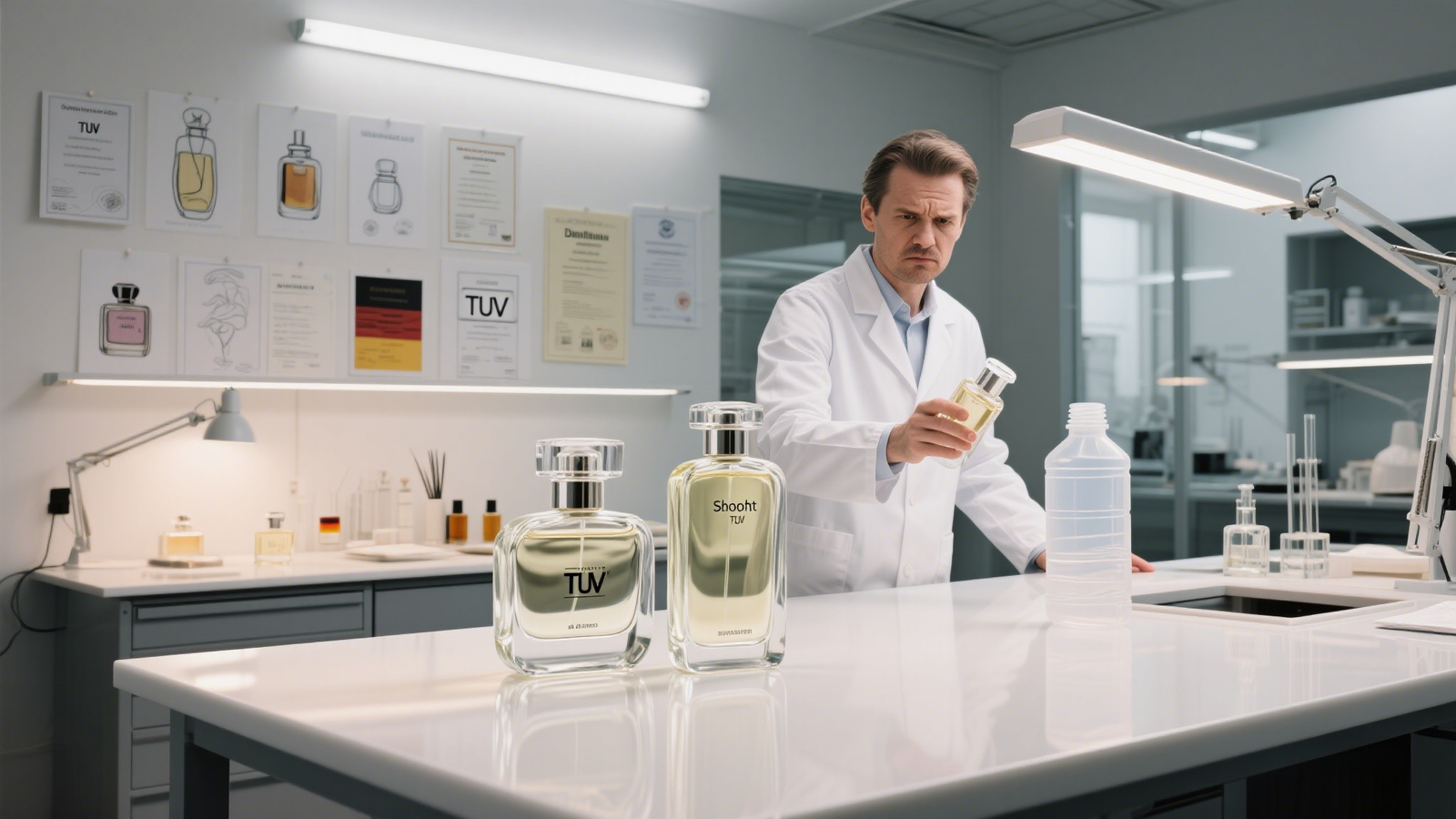German TÜV-Certified Schott Glass: Why Top Perfumers Reject Plastic Dispensers

When smartphone manufacturer vivo equipped its new foldable device with SCHOTT UTG ultra-thin glass—boasting a “500,000-fold certification”—a quiet revolution was unfolding in perfumery. On perfumers’ worktables, plastic dispensers are being phased out, replaced by specialty glass containers featuring German TÜV-certified Schott pharmaceutical glass technology.
The Silent Enemy of Fragrance: Plastic’s Invisible Threat
Plastic containers may seem convenient but harbor hidden dangers:
Chemical Reactions: Temperature fluctuations trigger oxidation, accelerating the degradation of natural ingredients.
Impurity Contamination: Polymers in plastics can release microchemicals that bind with terpenes in fragrances, creating a harsh “plastic odor.”
Health Risks: Phthalates in low-quality bottles may disrupt endocrine functions and reproductive health.
Master perfumer Yu Guangpian, with 20 years of experience, compares plastic contamination to “ink dropped into pure water”—subtle yet irreversible.
Schott Glass: A Century of Scientific Mastery
Schott’s dominance in perfumery is no accident:
Ultimate Purity: Produced in GMP-certified facilities, this glass—originally designed for sterile pharmaceutical storage—outperforms plastics in contamination resistance.
Structural Resilience: Lithium-aluminum-borosilicate (LABS) formulas combined with chemical strengthening enable scratch resistance and thermal shock endurance.
Preservation Excellence: As perfumer Francis Kurkdjian states, “Oxygen is fragrance’s nemesis.” Schott’s dense structure drastically slows molecular oxidation.
Lab data reveals Schott’s ultra-thin glass achieves 16-micron thickness with under 2mm bend radius—a “flexible-yet-rigid” barrier ideal for fragile essences.
Perfumers’ Obsession: Rituals from Blotters to Glass
Professional workflows demand uncompromising materials:
Sampling Protocol: Perfumers never sniff directly from bottles, using scent blotters instead—a principle extending to container selection.
Rising Scent Economy: China’s 16% annual fragrance market growth fuels quality demands. Independent perfumers emulate houses like Éditions de Parfums Frédéric Malle, using Schott bottles as seals of quality.
A perfumer training in Grasse summarizes: “Perfume in plastic is like stale tea—even premium ingredients degrade.”
In an era prioritizing fast production, top perfumers’ insistence on glass is a manifesto: true olfactory art rejects cheapness and decay. Schott’s century-old materials science, bridging foldable screens and perfume bottles, answers one question bidirectionally—when precision meets fragility, only ultimate purity can protect ultimate sensitivity. Next time you press a perfume spray, that untainted aroma embodies a cross-disciplinary symphony between perfumers and glass artisans.
Glass Container Advantages:
✅ Zero Contamination: GMP-certified pharmaceutical glass ensures purity
✅ Preservation: Dense structure delays oxidation
✅ Safety: Withstands thermal shocks, zero chemical leaching
